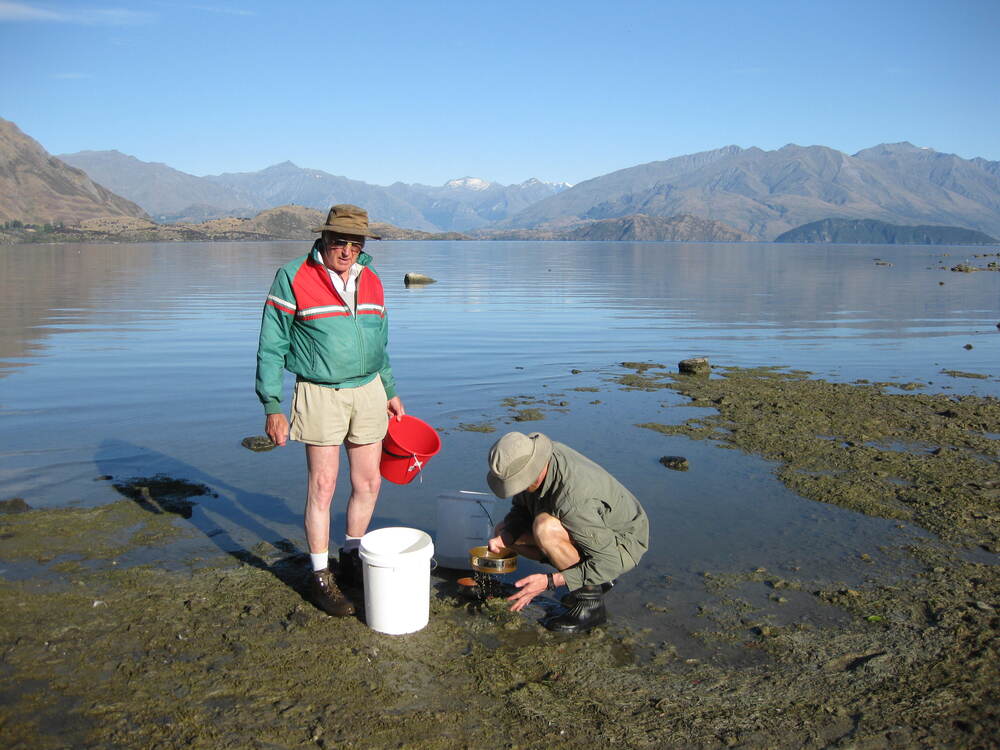Duck itch expert on summer prevention
Rosemary Brader
23 November 2023, 4:06 PM
 Doctor Norman Harris with Sara Brant, who he has undertaken field work with, at Bremner Bay in Wānaka.
Doctor Norman Harris with Sara Brant, who he has undertaken field work with, at Bremner Bay in Wānaka.A man who studied ‘duck itch’ for 40 years says there is a simple way to avoid catching it when swimming in the lake this summer.
Duck itch, formally known as schistosome cercarial dermatitis, is a condition that can be passed on to humans from the small, yellow-eye black diving ducks, the New Zealand Scaup, which live around Lake Wānaka.
Doctor Norman Davis, 88, started investigating duck itch after he and his family caught it while holidaying in Wānaka and swimming in the lake many years ago.
"We were fine after going to the chemist and getting the right cream," he said.
But the experience sparked his interest and took him down the long journey of studying parasitology.

Norman started studying duck itch after he and his family caught it while swimming in Lake Wānaka many years ago.
He has now spent close to half his life studying the parasite, which is housed in the Scaup and causes the duck itch condition when it gets under the skin.
"Anyone who is exposed to a large number of parasites at any one time, could overwhelm, by sheer numbers, the immune system," he said.
Fortunately, there is a way to avoid infection while swimming in the lake: ”Use a sunscreen which contains phenoxyethanol as a stabiliser," he said. "Look for the small print."
Norman said he would like to see coin-operated slot machines, free dispensers, or something of the sort, containing small amounts of the sunscreen placed at popular Lake Wānaka locations - as well as at other lakes in New Zealand.
Locally, it's something a community group or Rotary could get started, he suggested.
The former Navy pilot has a bach in Wānaka but lives in Waimate, where he has farmed for many years.
He has been able to fit in his study into duck itch around his farming.
Norman had completed a Masters in Zoology and Parasitology when he applied to study for a doctorate through Otago University.
“This allowed me to do the research ‘part-time’ for 10 years, from 1990 to 2000. The scope of the work involved required every bit of 10 years to complete."
His interest didn’t lessen over time.
"There is an old saying about doctorate research,” he said. “It goes: ‘A doctoral candidate "learns more and more about less and less until they know absolutely everything about nothing at all’.”
"I am running out of time to do any more," he said.
PHOTOS: Supplied






